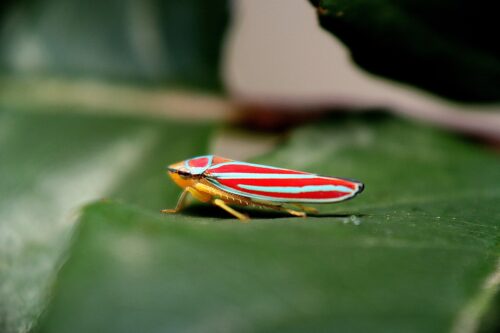Image Courtesy of Pixabay
Has inspiration ever hit you while you were on the toilet? For scientists studying the potty period of the glassy-winged sharpshooter, a half-inch-long insect in the Cicadellidae family, a revelation between physics and biology was born. Known to be serious agricultural pests, sharpshooters relieve themselves by forming a small droplets of urine at their anal styluses, which are an appendages involved in excretion. Eventually, theis droplets grows to a diameter of 0.725 millimeters, and the anal styluses launches theeach particulates repeatedly, accelerating up to forty times the force of gravity.
Sharpshooters developed this bathroom behavior due to their water-heavy diets. The leafhoppers feed on plant xylem sap, which has a small nutrient-to-liquid ratio. As a result, they drink up to three hundred times their body weight. A closer analysis of this phenomenon, published by researchers at Georgia Tech in Nature Communications, showed that sharpshooters developed this biological mechanism to conserve energy given their small size and energy output.The sharpshooter’s urinary facilities mark a notable discovery because they are the first observation of superpropulsion in a biological system, a phenomenon in which a projectile moves faster than the launcher that propelled it. Applications of the sharpshooter’s mechanisms have a future in electronics. Researchers investigating the sharpshooters foresee how the insect’s energy-efficient solution can be used to remove solvents in micro-manufacturing or to eliminate water from complex surfaces. This intersection of the physical and biological sciences sets a precedent for finding unorthodox answers. Wherever and whenever inspiration or the need to relieve strikes, innovation may soon follow.

